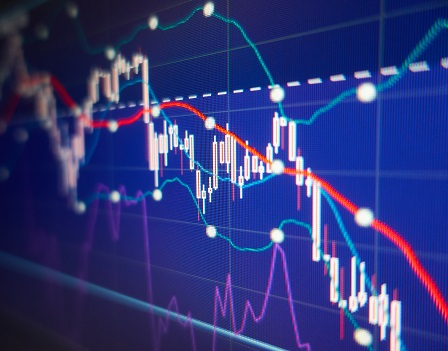
“I never have an opinion about the market because it wouldn’t be any good, and it might interfere with the opinions we have that are good.”
-Warren Buffett
Equity markets have fallen substantially this week as concerns about the coronavirus deepened. While our clients are probably used to our “stay the course” message whenever the market starts to sharply decline, we thought it would be useful to provide some context around what we are currently experiencing.
Please note: the matter-of-fact nature of this piece should not suggest any apathy towards the very real human toll of the coronavirus. Our comparison of this “market event” to others should not be taken as a disregard for the personal tragedy that many around the world are facing.
With that said, part of the job of an advisor is to be objective in recommending decisions that might alter the course of a well-crafted plan. In just the past 24 hours, we have received numerous calls from concerned clients, all wondering if this time is actually different. The implication, of course, is that there must be some action we should be taking.
We can’t answer that question with certainty. No one can. But, as we’ve said before, “this time is different” can be the four most dangerous words in investing. Since the S&P 500 bottomed in March of 2009, there have been 26 declines of at least 5%. Whether due to the European Debt Crisis, fears of inflation as a result of the Fed’s quantitative easing program, falling oil prices, Ebola, inverted yield curves, trade wars & tariffs…each time, there were those who were convinced the world (or at least the stock market) was about to unravel.
It does appear evident that some sort of slowdown in China and other countries is occurring as citizens are quarantined, and global commercial activity is disrupted. Many people have drawn comparisons to the SARS outbreak in 2003, noting positively that hardly anyone remembered SARS during the bull market that continued until late 2007. It certainly wasn’t SARS that led to the Great Recession. During the height of the SARS virus, the S&P 500 fell by nearly 13% over 38 trading days. A similar decline related to the Zika virus occurred in late 2015 and into early 2016. Each time, the market recovered and hit new highs.1
But to be fair, the world today is far more integrated economically than it was in 2003. Also, China’s economy at the time was much smaller than it is now, so it would be reasonable to think that the equity markets might react more strongly this time around.
Anyone who drives a car is comfortable with the possibility that they might get into an accident. The benefits of having a car have been determined to outweigh the risks; otherwise, no one would drive. Just as the occasional fender-bender is an inherent risk in driving, short-term declines are an inevitable part of investing in the equity markets. Unless you believe the coronavirus is going to wipe out markets entirely (of course, that didn’t happen even during the Great Depression), the options one has with their equity exposure are, now and forever:
- Reduce your exposure
- Increase your exposure
- Do nothing
If you reduce your exposure with the intention of buying back in when things get better, history shows that you will almost certainly fail, and permanently lock in inferior returns. And of course, increasing exposure takes a strong stomach in the face of such a volatile time.
A well-designed asset allocation plan should allow you to sleep at night knowing that your needs are not threatened by short-term volatility in the stock market. Might it get worse – potentially a lot worse – before it gets better? Absolutely. Sometimes even us advisors look at the three options above and find none of them to be particularly satisfying. And yet, our experience and history have always shown that staying the course wins out if the portfolio is structured properly and has the right time horizon.
So we are once again advising clients to stick to their plan. Hopefully, the global health authorities can contain the outbreak, and we can draw at least some comfort knowing that swift and decisive measures are being taken to do just that. What we have seen in the markets over the past two days is not an unreasonable reaction to the news, and we believe it will be relatively short-lived without a long-lasting effect on the global economy.
1. Source: First Trust

